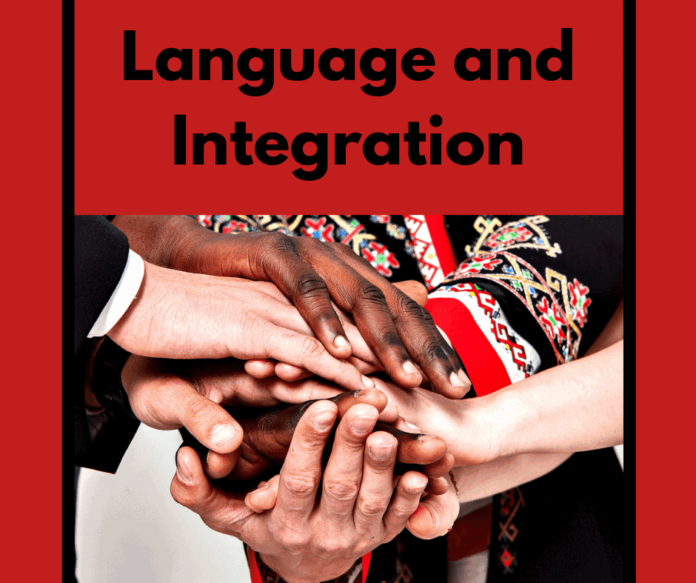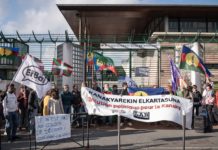EDURNE ALEGRIA AIERDI.
Some considerations occur to me following the article published in the BERRIA newspaper on September 11 by Iraitz Lazkano, President of the Association of Basque City Councils (UEMA), titled “Herritar gehiago, euskara gehiago” (“More citizens, more Basque Language”) (https://www.berria.eus/paperekoa/1876/021/001/2021-09-11/herritar-gehiago-euskara-gehiago.htm).
Mr. Lazkano wants to show that immigration does not harm the Basque language, as some are claiming.
Leaving aside a possible perverse intention of those who propagate this theory, let us coldly analyse what influence inserting a segment of the population of one territory into another territory can have, regardless of the territory of origin and the territory of destination. I think that we will all agree that newcomers come with their own customs, with their culture and with their language, and that in the host country they meet other customs, another culture and another language. The meeting of these two population groups creates a new situation for the host population, and it is up the latter to ensure that the newly-arrived population is incorporated into their new location as well as possible, producing least changes in the way of life of the natives.
Therefore, for years now, the countries that receive immigrants have had to take this issue into consideration and have had to create laws and regulations to regulate the influence of immigration on society in various areas: in the workplace, health, housing, … and, of course, in language.
I find interesting the work of Professor of Political Science Rut Bermejo (Idioma e Inmigración: un análisis de la evolución de los requisitos idiomáticos en las políticas de inmigración) (Language and Immigration: an analysis of the evolution of language requirements in immigration policies) (2008-04-16), where she analyses the relationship between language and migration policies in different countries. Likewise, the work of Jesús Martínez (Exigencias lingüísticas a migrantes adultos en Europa) (Linguistic requirements for adult migrants in Europe) (Université Sorbonne nouvelle-Paris 3), where you can see, in June 2008, the conclusions of the seminar organized by the Council of Europe titled: La integración lingüística de adultos migrantes (The linguistic integration of migrant adults). By the way, let’s note the words used when mentioning linguistic demands: requirements, demands.
I quote these works to underline one thing: that language is an unavoidable topic when we talk about immigration and of course, that the examples that appear in those works correspond to nations with a state: Australia, Canada, France, Germany, etc. The obligations to know the language in all of them is in pursuance of the integration of immigrants, nor is this questioned by anyone, since each State gives priority and protection to its own language.
But let’s get back to ourselves. What about stateless nations like ours? What happens in territories like ours, where despite having the right to use our language we are obliged to know Spanish or French, and consequently we all learn the hegemonic language? In our case, those who come from abroad, aware of this situation, prioritise learning the language that is mandatory, as is logical, except for Hispanic-Americans, who already know the language that is mandatory in the South of the Basque Country. In our case, the majority of immigrants integrate into Spanish in the South of the Basque Country, as is logical, since nothing or no-one requires them to learn the Basque language. It is clear, on the other hand, that we cannot attribute the socio-linguistic situation of our language to immigrants, since the people responsible for it are the Basques themselves. Even so, it is undeniable that the dysglossic situation we are experiencing is further aggravated by the entry of new non-Basque-speaking inhabitants.
This can be a problem, yes, but it is by no means the most serious problem our language suffers, as it is only a consequence of the general treatment to which Basque is subjected. For many years we have demanded the “normalisation” of the Basque language, because its situation is not “normal”, and at the same time during all these years we only put poultices on the patient, who is in agony.
UEMA, and similar associations that work for the benefit of the Basque language, do a good job in support of it, there is no doubt about that. The examples Mr. Lazkano cites in his article are exemplary. However, if all this work – including the teaching of Basque to immigrants – is not done within a general, official and planned strategy for the recovery of the language, we can continue to spend money and energy, but we will not “normalise” the Basque language.
In this recovery process, we must not forget that language fulfills a special function, that of fostering the feeling of belonging to a People. One only has to see the importance attached to this by our neighbors (French and Spanish) when it comes to guaranteeing social cohesion and, at the same time, integrating immigrants. In the works cited above, it is clearly explained that in order to obtain the nationality of the State, they are required to master the state language. In our case, on the contrary, this function is blurred in the name of “kindness”, a misunderstood solidarity and universality, or even because we are too docile in the face of those who dominate us. At the same time that Spain and France are taking increasingly harsh measures against us to protect their hegemonic languages, we, on the other hand and according to them, must consider our optional language, and place it at the same level or at a lower level than other languages.
If the language that makes us Basques does not receive the remedies and care it needs, and is not treated in the same way as any national language, it will disappear.








